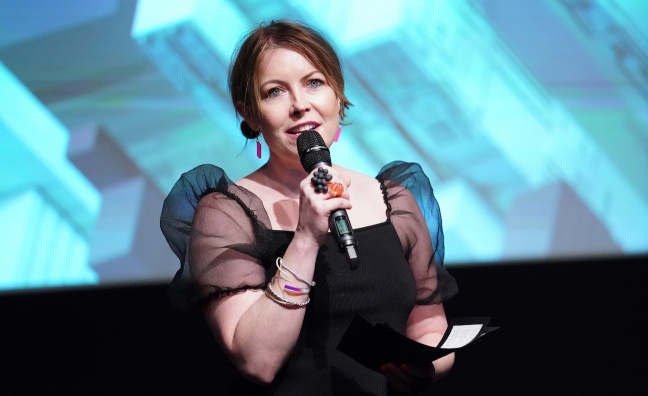BPI chief executive Dr Jo Twist has said that it is essential that government policy “does not allow AI to get a free ride” as the debate around the impact of artificial intelligence on the music industry continues.
Twist’s comments come in the wake of today’s publication of the Culture, Media and Sport Committee’s second report on connected technology, in which MPs call for the Government to abandon plans to allow AI developers the free use of music, literature and works of art to generate new creations.
The report warns against the Government’s plan to exempt text and data mining by AI from copyright protection and welcomes indications that ministers are reconsidering those proposals. It highlights concerns about allowing AI developers to “mine private intellectual property for profit without sharing with the original creators”.
Elsewhere, citing ABBA Voyage as an example, the report recommends Government support for the creative industries to “encourage artists to push the boundaries of creative technology”. It also calls for urgent action to improve protections for creatives to prevent misuse of their likeness and performances by new technologies.
Dame Caroline Dinenage MP, chair of the Culture, Media and Sport Committee, said: “The chorus of warnings from musicians, authors and artists about the real and lasting harm a failure to protect intellectual property in a world where the influence of AI is growing should be enough for Ministers to sit up and take notice. The Government must now start to rebuild trust by showing it really understands where the creative industries are coming from and develop a copyright and regulatory regime that properly protects them as AI continues to disrupt traditional cultural production.”
The Government must now start to rebuild trust by showing it really understands where the creative industries are coming from
Dame Caroline Dinenage MP
Dinenage said that the “development and use of creative technology is currently being hampered by a shortage in technical skills”.
“For the UK to fulfil its potential as a world leader in the creative industries, the Government must commit to ensuring the right skills are being taught to ensure a pathway for the next generation of digital artists, visual effects professionals and innovators,” she added.
In response, Jo Twist said: “We welcome the Select Committee’s call to Government to be steadfast in its commitment to human artistry as AI develops. Our world-leading creative sectors are based on phenomenal talent and on strong intellectual property that enables creativity and innovation to thrive. While opportunities presented by AI are being embraced across the music community, it is essential that artists and rights holders can work in partnership with technology and that policies do not allow AI to get a free ride but to always respect human creativity by seeking permission and remunerating the use of creative content.”
Our world-leading creative sectors are based on phenomenal talent and strong intellectual property that enables creativity and innovation to thrive
Jo Twist, BPI
Back in February, UK Music chief executive Jamie Njoku-Goodwin welcomed the Intellectual Property minister’s announcement that he plans to scrap the introduction of the government’s broad copyright exception for text and data mining purposes.
Earlier this month, YouTube unveiled its AI principles and launched its new AI Incubator in partnership with Universal Music Group.
In making the announcement, YouTube CEO Neal Mohan warned that, “At this critical inflection point, it’s clear that we need to boldly embrace this technology with a continued commitment to responsibility.”
Universal Music Group chairman & CEO Sir Lucian Grainge spoke up firmly for artists and creators.
“AI will never replace human creativity because it will always lack the essential spark that drives the most talented artists to do their best work, which is intention,” he said. “From Mozart to The Beatles to Taylor Swift, genius is never random.”









